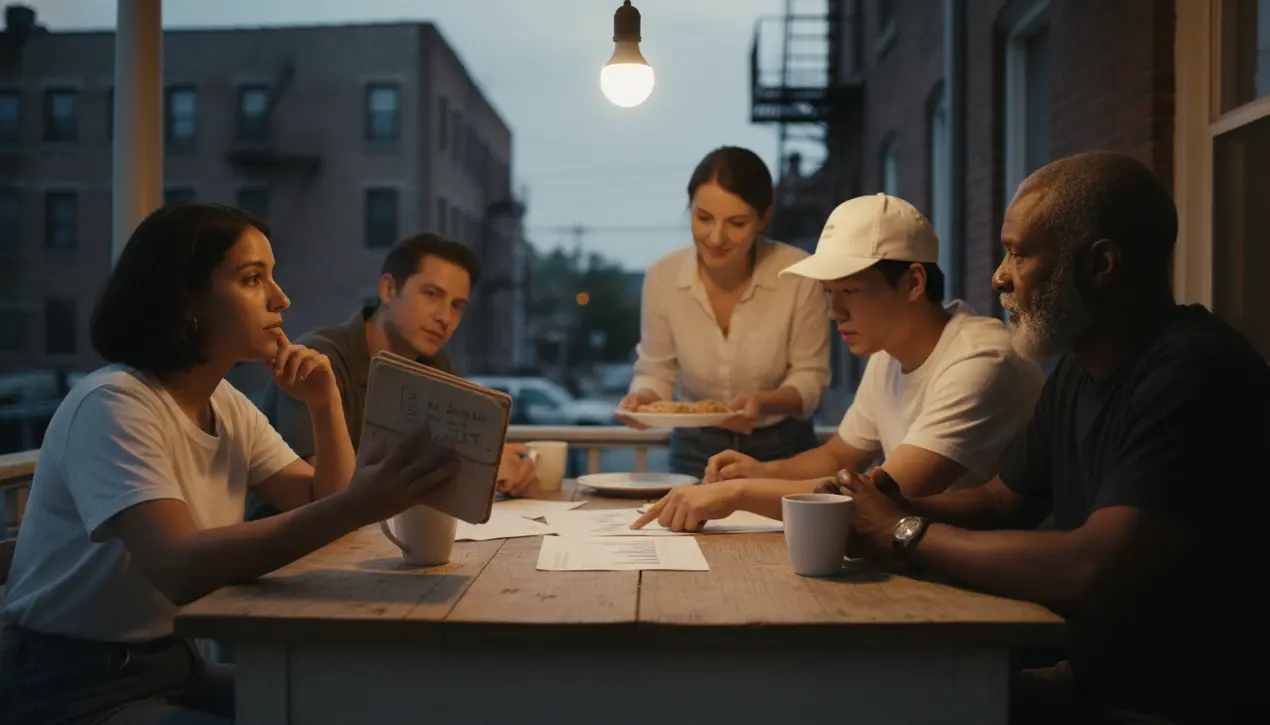
CryptoregulationPolicy Debates
Storytelling can reframe the economic conversation.
LA
Laura Bennett
2 hours ago7 min read1 comments
The trajectory of our national economy weighs on every American like a shared anxiety, a story we've all been told but struggle to believe. I've spoken with dozens of people—recent immigrants clutching their work permits, single parents balancing multiple jobs, young graduates staring at student loan statements—and beneath the rising living costs and distant tariff battles, there's a common thread: the slow unraveling of a foundational narrative.We were taught from childhood that hard work guarantees prosperity, a lesson repeated in classrooms and family kitchens, yet our lived experiences whisper a different truth. The community where you draw your first breath profoundly shapes your entire journey, a reality researchers like Raj Chetty have mapped with chilling precision, showing how zip codes often dictate destinies.I remember a conversation with a man in Albuquerque who described this dissonance as a constant hum in the background of his life—the American Dream playing on one channel while his reality tuned into another. This isn't just about statistics; it's about the cortisol-fueled stress of striving in a system where the rules feel rigged, where your starting line determines your finish.Author Isabel Wilkerson's work on caste systems resonates here, not as a foreign concept but as a mirror to our own hierarchies. The power of narrative isn't merely academic; it's the lens through which we decide who deserves opportunity and who gets overlooked.After George Floyd's murder, I watched communities grapple with this directly—local businesses suddenly seeing customers they'd ignored, conversations bubbling up in coffee shops and town halls about structural barriers that had been invisible to many. That moment was like a flashbulb illuminating deep cracks in our national story, but like all bright lights, it eventually faded, leaving us squinting at the afterimage.Yet in that dimness, something persists: an unlabeled, deeply human value of shared dignity that I've observed in cross-sector coalitions from Memphis to Minneapolis. At Living Cities, this shift from scarcity to abundance isn't policy jargon—it's the emotional core of rebuilding trust.When loan underwriters in Albuquerque began listening to the lived experiences of Black entrepreneurs rather than just crunching numbers, they weren't just adjusting risk models; they were rewriting the story of who gets to thrive. This work requires cocreating narratives with those affected, blending hard data with human vulnerability, and teaching media literacy as a form of self-defense against stereotypes.The result isn't just economic—it's psychological, replacing the old tale of bootstrapping individualism with a new story of collective flourishing where neighborhoods once labeled liabilities become sites of untapped potential. That's the reframe we need: not just changing policies but changing the very stories we tell ourselves about risk, worth, and what it means to belong in America.
#editorial picks news
#economic narrative
#storytelling
#equity
#American Dream
#structural barriers
#community development
Stay Informed. Act Smarter.
Get weekly highlights, major headlines, and expert insights — then put your knowledge to work in our live prediction markets.
Related News
Comments
Loading comments...
© 2025 Outpoll Service LTD. All rights reserved.